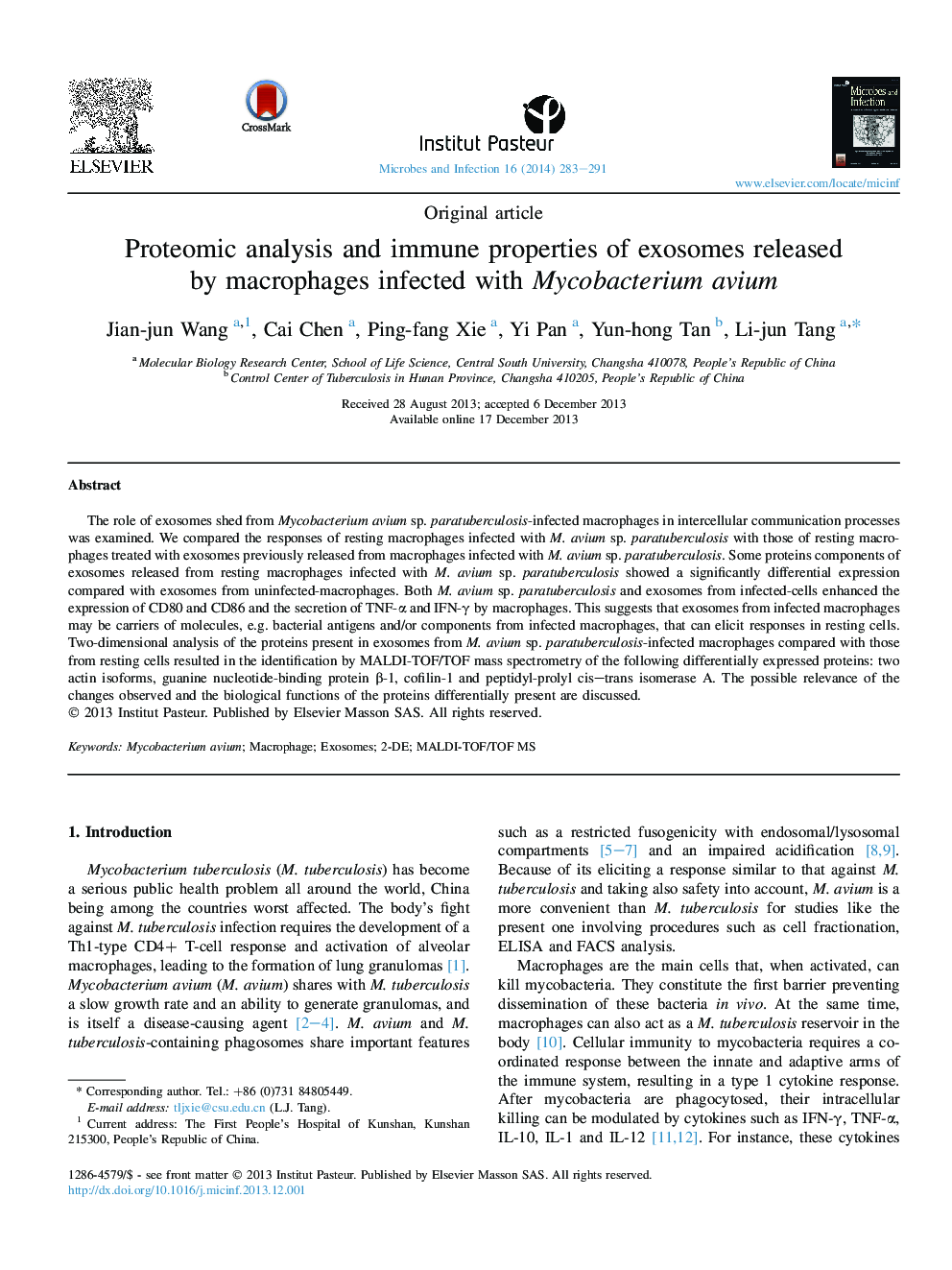| Article ID | Journal | Published Year | Pages | File Type |
|---|---|---|---|---|
| 3414785 | Microbes and Infection | 2014 | 9 Pages |
The role of exosomes shed from Mycobacterium avium sp. paratuberculosis-infected macrophages in intercellular communication processes was examined. We compared the responses of resting macrophages infected with M. avium sp. paratuberculosis with those of resting macrophages treated with exosomes previously released from macrophages infected with M. avium sp. paratuberculosis. Some proteins components of exosomes released from resting macrophages infected with M. avium sp. paratuberculosis showed a significantly differential expression compared with exosomes from uninfected-macrophages. Both M. avium sp. paratuberculosis and exosomes from infected-cells enhanced the expression of CD80 and CD86 and the secretion of TNF-α and IFN-γ by macrophages. This suggests that exosomes from infected macrophages may be carriers of molecules, e.g. bacterial antigens and/or components from infected macrophages, that can elicit responses in resting cells. Two-dimensional analysis of the proteins present in exosomes from M. avium sp. paratuberculosis-infected macrophages compared with those from resting cells resulted in the identification by MALDI-TOF/TOF mass spectrometry of the following differentially expressed proteins: two actin isoforms, guanine nucleotide-binding protein β-1, cofilin-1 and peptidyl-prolyl cis–trans isomerase A. The possible relevance of the changes observed and the biological functions of the proteins differentially present are discussed.
